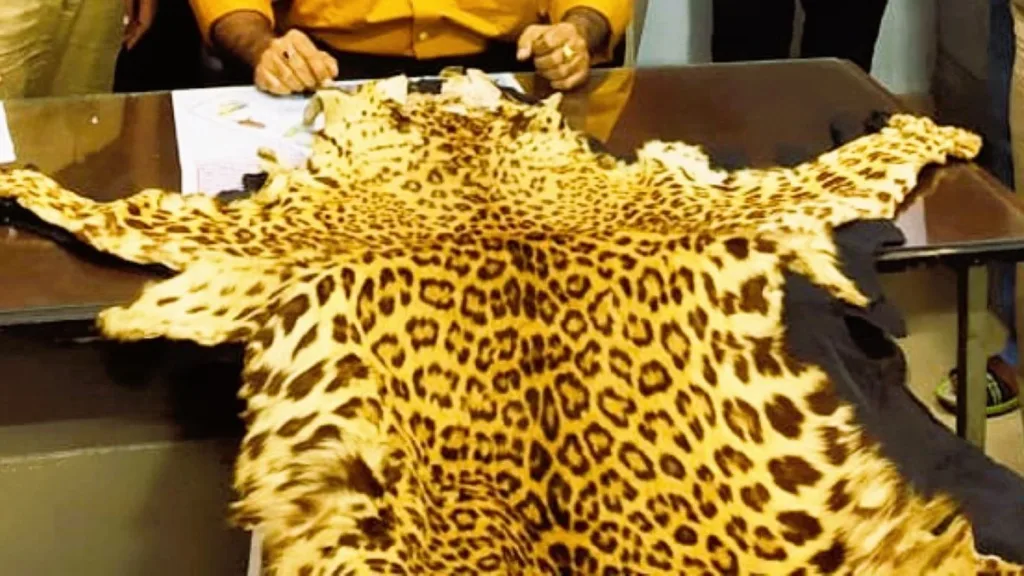In a significant operation aimed at curbing illegal wildlife trade, officials from the Directorate of Revenue Intelligence (DRI) successfully seized four leopard skins. The operation, which unfolded in Srinagar, Jammu and Kashmir (J&K), was meticulously planned after intelligence indicated the involvement of several gangs in the illicit trade of leopard skins.
The DRI’s Mumbai Zonal Unit, operating through its Goa Regional Unit, initiated the operation based on gathered intelligence suggesting that certain criminal groups in Srinagar were actively seeking buyers for leopard skins, a valuable commodity in the illegal wildlife trade. Adopting an undercover approach, DRI officers posed as potential buyers and traveled to Srinagar to intercept the criminals.
After multiple rounds of negotiations, the perpetrators brought the first leopard skin to a predetermined location near Dalgate in Srinagar. However, vigilant officers conducting surveillance promptly apprehended an individual carrying the contraband near the designated spot. This initial apprehension led to the identification and subsequent interception of another accomplice at a different public location in the city.
Following the successful interception of the first group, DRI officers continued their negotiations with a different gang involved in the illegal trade. After prolonged discussions, the sellers eventually agreed to bring three additional leopard skins to a pre-arranged location. Acting on this new lead, law enforcement intercepted three individuals transporting the prohibited wildlife items.
Intelligence gleaned from these detainees revealed the presence of three more individuals associated with the criminal transaction. Swift action was taken as two teams of officers were dispatched to the public area where the suspected individuals were located. As a result, a total of eight individuals, including a serving police constable, were apprehended for their involvement in this illicit trade.
The preliminary investigation unveiled that the leopard skins were sourced from various regions, including Ladakh, Doda, and Uri. These findings underline the transregional nature of wildlife trafficking networks and their detrimental impact on endangered species.
Under the provision of Section 50(1)(c) of the Wildlife (Protection) Act, 1972, the four seized leopard skins were confiscated. Furthermore, the eight individuals responsible for violating the Wild Life (Protection) Act, 1972 were handed over to the Department of Wildlife Protection in Jammu and Kashmir, following initial seizure proceedings.
The DRI’s successful operation highlights the commitment to combatting wildlife trafficking and protecting endangered species. The efforts of law enforcement agencies, including the DRI and the Department of Wildlife Protection, underscore the collaborative approach required to preserve the rich biodiversity of the region and deter criminal activities that threaten the balance of nature.

